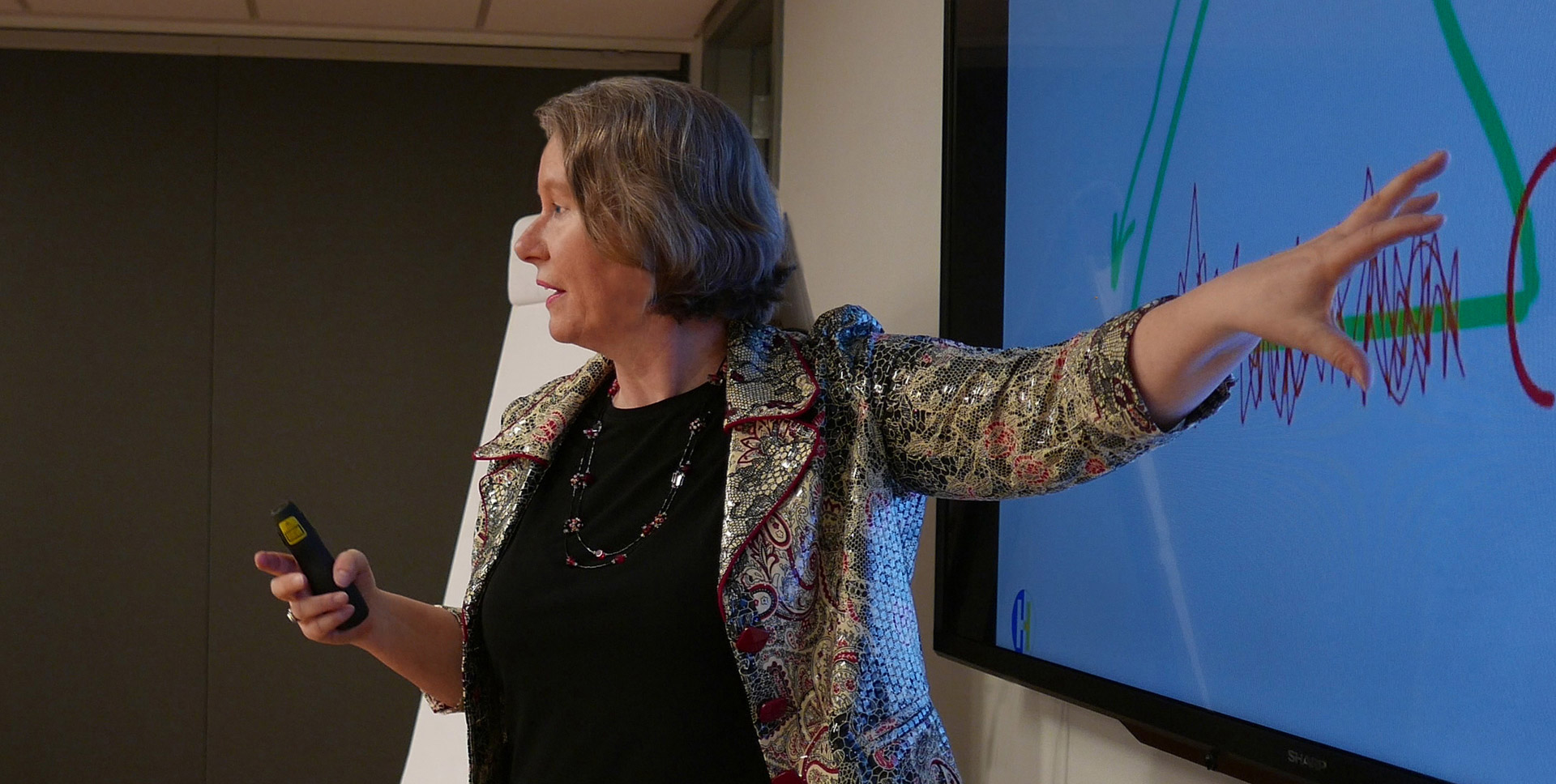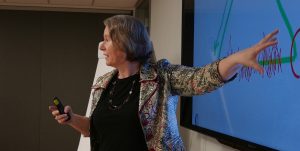
Most management training programs gloss over the challenges of matrix management.
It’s difficult to manage in a matrix. And getting even harder:
- It’s challenging to complete projects when team members are working for multiple managers who are competing for their time
- Cross-departmental conflict and escalation happens more often when it’s not clear who makes the final call (or when people dispute the decisions made)
- More people are working remotely and feeling disconnected from their colleagues and the mission of the organization
- Diversity, equity, and inclusion are long-overdue priorities that require stronger skills for many managers
What is the difference between a matrix manager and a regular manager? Matrix managers are responsible for teams and results, but many (or all) of the people “working” for them are not their direct reports.
A typical organization chart:
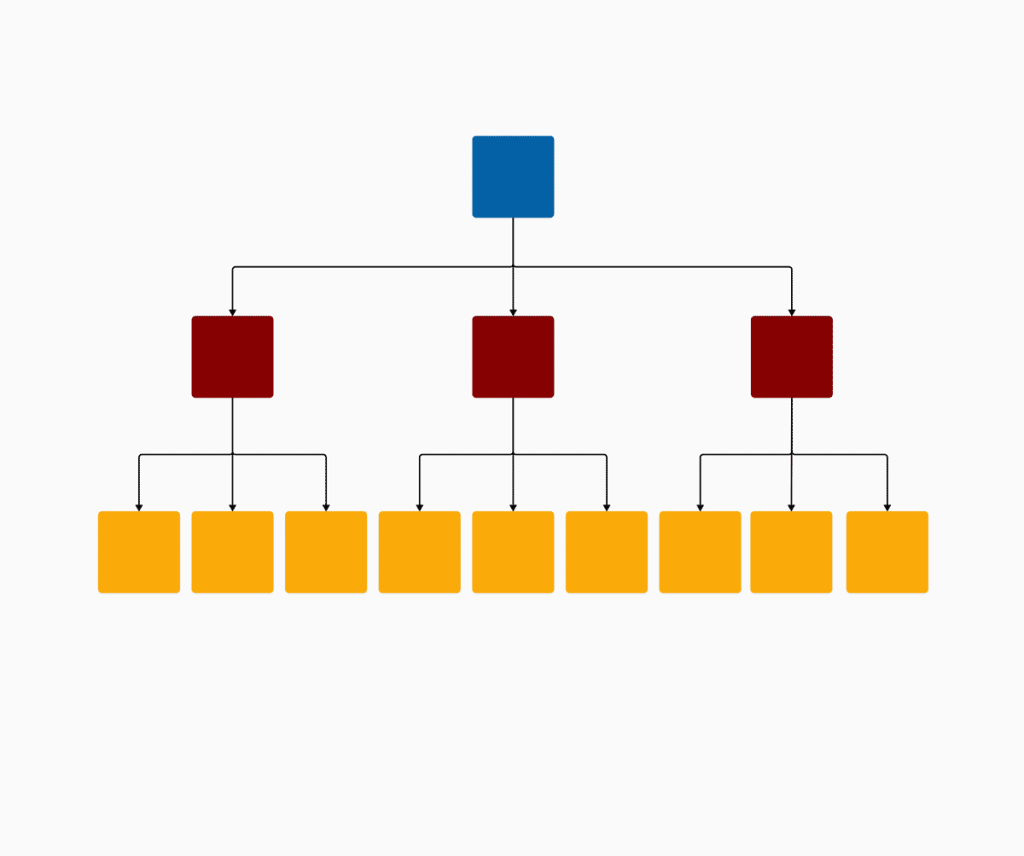
How things actually work in a matrix:
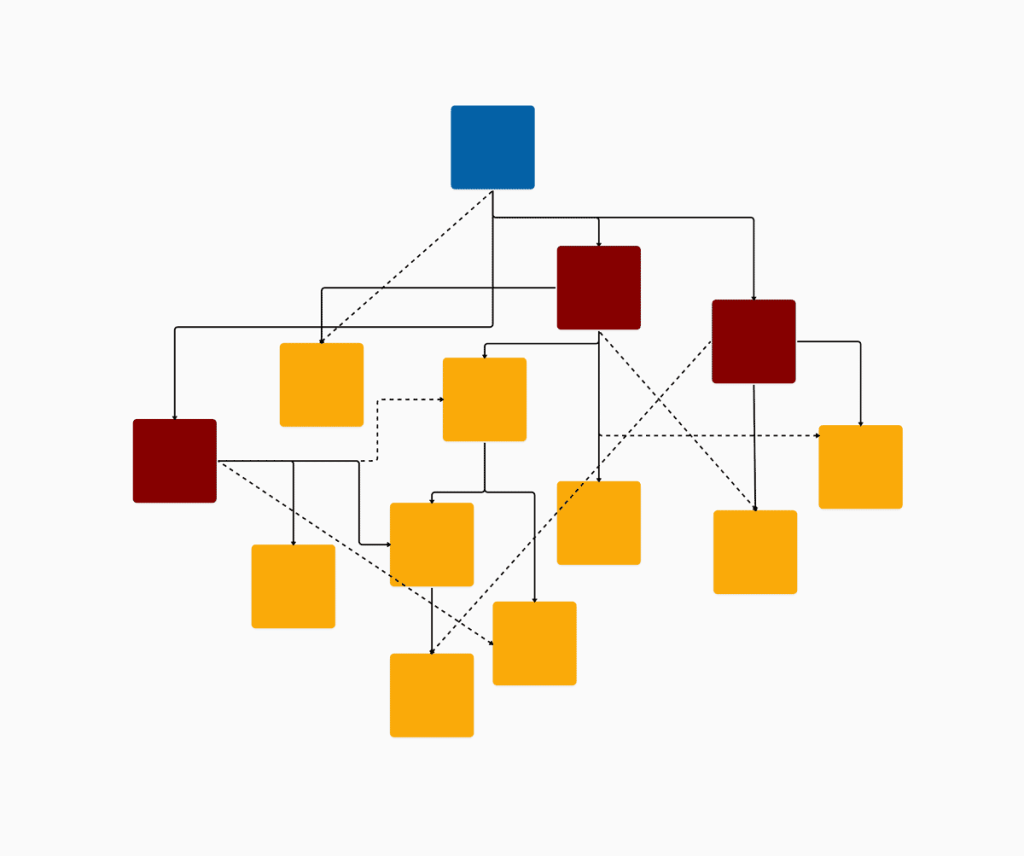
We are honored to offer the high-impact training matrix managers deserve.
Cumulative training for a year
In-person and virtual sessions
Action-packed modules
Video-based bootcamps
Matrix management survey
Practical tips, tools, and hacks
Confidential feedback
Foundation for managing DEI
Stronger connections with colleagues
Library of resources
What’s included:
- Twelve months of training for current or aspiring matrix managers
- 50 hours of attendance at various training events
- Modules covering how to build relationships across silos; dancing with difference; how to manage cross-functional teams and dual reports; influencing colleagues, partners, and senior leaders; staying cool when things get hot; facilitating inclusive meetings; and aligning remote teams
- Numerous opportunities to learn and practice the survival skills successful matrix managers use to ace difficult conversations, to de-escalate challenging meetings, and to give feedback quickly and confidently
- A FIRO-B Team Workshop, where participants explore how their leadership preferences can work for and against them as they manage projects and teams
- Peer-feedback Bootcamps, in which teams of four participants apply what they’ve learned and watch themselves on video, which provides indisputable evidence of what’s working and what needs to improve
- A Matrix Management Feedback Survey of those who know the participant well enough to rate how well they demonstrate a suite of matrix management competencies
- Pre-work for each session, and curated post-session reading and listening assignments
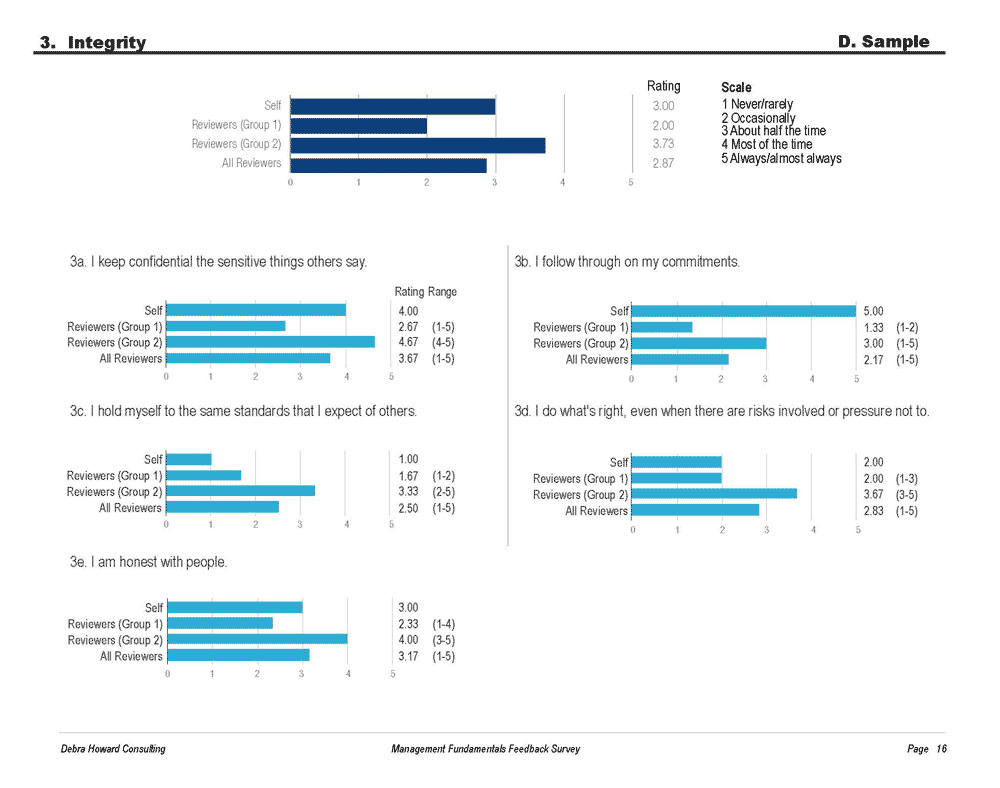
One of the pages from the multi-rater Matrix Management Feedback Survey report.
Why make this investment now?
- Better results: The graduates of this program manage higher-performing teams that deliver ambitious results and increased impact—more quickly and cost-effectively.
- Better managers: Graduates become better at inspiring and retaining staff, giving feedback and quickly addressing performance issues, managing complexity and diversity, and being strategic and inclusive.
- Better communicators: Some matrix managers try to avoid challenging conversations altogether, some resort to scolding and lecturing, and others wait until they’re fed up and lose their cool. The Bootcamps are the capstone of the program, catalyzing permanent improvements to ineffective (and often damaging) communication defaults.
- Retention of high performers: This investment sends your leaders a clear signal that you recognize their potential and are willing to invest in them.
- Positive role models for future leaders: The impact of this program persists through multiple generations of managers in your organization.
Determining who is ready:
This program is for matrix managers at all levels. Ideal candidates are doing well (the training is not designed to “fix” underperforming managers) and aspire to grow into higher levels of leadership.
For the best ROI, a cohort of 16 managers is optimal. Cohorts of twelve, eight, or four are also welcome.
Sign up for free tips and sessions:
If you enter your coordinates here, we’ll send you our matrix tips, as well as a schedule of the free sessions we host each month to give people a taste of what we offer and how good it really is.
Past session topics include:
- Riding the Rapids: How to Stay Afloat When You’re Deluged with Work
- Using Competency Interviewing Techniques to Determine Soft Skills
- Professional Development: 50 Activities that Go Beyond Promotions and Training
- Better Meetings: How to Call the Process When Things Get Hot or Go Sideways
- Using Feedforward (Instead of Feedback) to Strengthen Teams
- Unlocking What You Need by Using Listening as the Key: You Think You’re Doing It, but You’re Probably Not
Download a description of the training: Debra_Howard_Matrix_Management_Training.pdf
Go to the Debra Howard Consulting website
What people are saying about our programs:
Building trust and breaking down silos.
We train matrix managers from the same organization, strengthening their connection to the organization’s mission and culture, and to one another.
Meeting together in large and small groups over 12 months builds the cohort’s identity as a team and their trust in one another, breaks through silos, and makes it easier to collaborate and to solve problems cross-functionally. Graduates say that this is as much a team-building program as a training one.

Debra Howard:
Training Mastermind, Presenter, and Coach
Debra Howard founded her consulting business in 1991. She specializes in executive coaching, management development, and action-packed training for improving team and individual performance. After coaching leaders for more than 25 years and seeing how little improvement they made after attending extensive (and often expensive) public management training programs, and how most of the programs barely touched upon the complexities of matrix management, she decided to launch her own in 2016, and has been delivering it ever since. A substantive and spirited presenter, and a skilled facilitator, Deb enjoys sharing her extensive knowledge about management, leadership, and organizational effectiveness. She is known for a no-nonsense approach to training that focuses on permanent improvement and change.
Deb has worked with CEOs, owners, partners, managers and their teams from a range of organizations and sectors, including the Jim Joseph Foundation, Johns Hopkins Department of Biostatistics, Stanford University School of Medicine, Crown Family Philanthropies, Cooley Dickinson Health Care, Creighton Manning Engineering, the Center for Reproductive Rights, NRDC, NRG Systems, Davidson College, Tetra Tech ARD, Universeum, and Kew Gardens.
Deb was also one of seven coaches selected for the Noyce Leadership Institute (NLI) in California, a prestigious leadership development program for science and technology executives from around the world. During the seven-year program, she coached 18 NLI fellows from organizations such as the Smithsonian National Museum of American History, the American Museum of Natural History in New York City, the Boston Children’s Museum, the Franklin Institute Science Museum in Philadelphia, and the Bloomfield Science Museum in Jerusalem.

